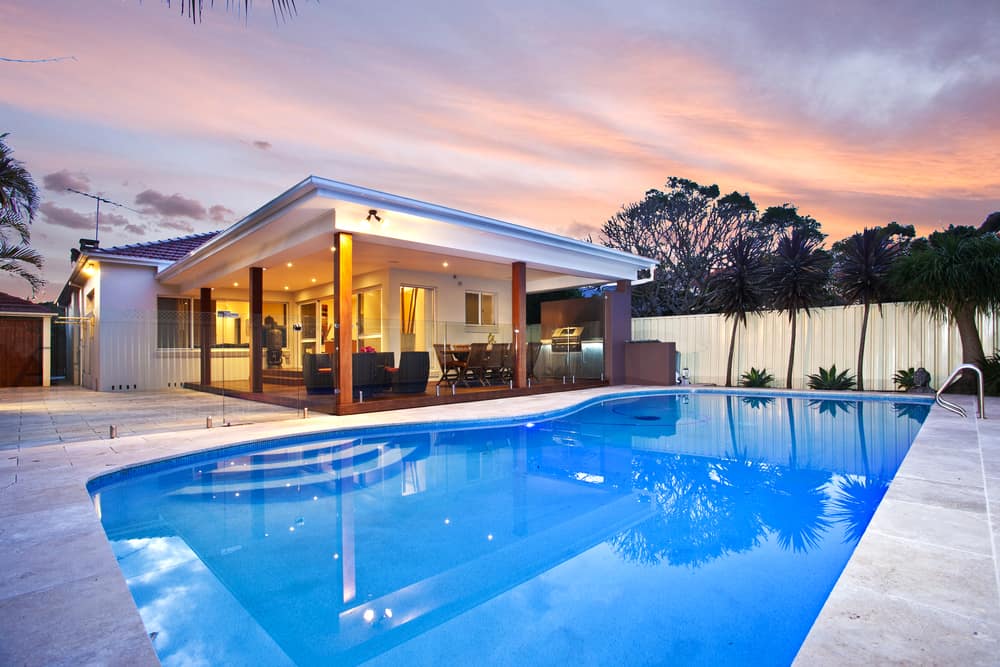The concept of a vacation rental investment has gained considerable momentum in recent years, and for good reason: the expansion of the economy, in addition to the advent of the private accommodation sector, has made it considerably easier for families to go on more vacations of their own.
As the economy improves, more and more people are finding disposable income to spend on vacations.
Contrary to what many investors think, owning a vacation rental property isn’t just like traditional real estate investing. Buying a vacation rental property requires a keen understanding of local markets and projected revenue. (Remember, unlike a traditional buy and hold property, buying a vacation rental means you’re adding a property to your portfolio that will have vacancies throughout the year.)
So, here are some things that every prospective vacation rental buyer should know before they make an offer and begin the process of buying a vacation rental property.
[Contact us to make your beautiful Real Estate website. Our Expertise will help you to Start your Real Estate Business and grow your Brand Identity]

Steps for Investing in Vacation Rentals
Before you even look at buying a vacation rental property, there are a few things you need to figure out. That’s because learning how to buy a vacation rental requires a special set of strategies.
Fortunately, it’s not as difficult to start investing in vacation rental properties as many would assume. I have broken down the entire process into five simple steps that anyone with a good work ethic and a mind for due diligence can grasp. Ringing true for almost any type of real estate investment, the very first step is doing your homework before you take any actions.
Do Your Homework
We have all heard it before: the golden rule of real estate is location, location, location. Quite simply, the location of a property is more important than anything else; it’s the one thing that ultimately can’t be changed. That said, it shouldn’t surprise anyone to learn that the first step to investing in vacation rental properties deals with deciding on a location. Proceed to choose a city to invest in and a region within said city. The more specific you can be, the better. Mind your due diligence and pay special consideration to everything that matters: market conditions, employment rate, weather, proximity to certain amenities, demand, inventory, and several other factors. While you certainly need to consider the tangible financial aspects of a prospective property, you can’t ignore the fact that your impending purchase must be in a pleasant, accessible, desirable location to attract guests easily.
Conduct an In-Depth Market Analysis
Once you’ve narrowed down your search to one or two potential locations, it’s time to examine the market and demand even more closely. Keep in mind that vacation rental demand is a different animal when compared to residential demand. Ask yourself, would you want to vacation in this area yourself? Consider practical things, such as what type of attractions are nearby and how the popularity of these attractions peaks and ebbs throughout the year. Then ask yourself, is there enough consistent demand for the vacation rental investment to be considered sustainable? Is there as much appeal in the winter as there is in the summer, and vice versa? Taking a look at vacation trends and property types that are influencing a particular area should be taken into careful consideration.
In addition to looking at vacation trends, you’ll also want to take property types and the local market into careful consideration. Once you figure out what type of property you’d like to buy, it’s time to make some market comparisons. Otherwise known as “comparables,” these properties will give you an inside look at how the market performs for a particular type of asset. Free listing sites such as Airbnb and VRBO are great places to compile market data. In addition to familiarizing yourself with a respective area, you can very easily identify a rental price range and begin to formulate the income you can reasonably expect from the property you are interested in. Check out our list of the top 10 places to buy vacation rental property.
Understand the Rhythm of Vacation Rentals
Earlier, we touched on the ebbs and flows of demand, which deserves an even closer look. Vacation properties are much different than traditional rentals: the income generated is often dependent on the season. A house near the water will attract more interest in the summer. A house near a ski resort will thrive during the winter months. You need to know what you can expect during both the peak seasons and off months. You also need to have an idea of the overall monthly expenses. You need to factor in that you will have to furnish the property and clean it every few weeks. The homeowners’ insurance may be increased, and there will be flood insurance if the house is near water. If you plan on buying the property, you will need at least a 25 percent down payment, and you can expect a higher interest rate.
Calculate Your Expected Income and Expenses
You can proceed to dig a little deeper if your selected market shows an inherent demand and the numbers you crunched indicated a good promise of consistent positive cash flow.
While rental income will certainly be contingent on the area you buy in, most landlords should expect to set the weekly rental rate at 10 to 20 percent higher than your expected monthly mortgage payments. However, it’s worth noting that landlords in high-demand areas could get away with asking for even more (that’s just one reason why market research and drawing comparisons are so important). Remember, you want to make money each month, but you don’t want to scare away prospective tenants; you have to find an agreeable middle-ground.
In addition to adjusting your income to cover more than your expected mortgage, make sure to factor in the inevitable down-times that your property is likely to face. After all, most vacation rentals are seasonal. While you can expect strong demand during high seasons, the demand needs to be lucrative enough to offset less busy months. I recommend factoring in at least a 25 percent vacancy rate to account for those times that the property is more than likely to sit empty. What’s more, you need to account for various other fees: condo fees, HOA fees, routine maintenance, etc.
One last fee must be accounted for: the property management fee. While it’s entirely possible to act as your own landlord, enlisting the services of a qualified property manager is highly recommended. This especially rings true if you’re investing from a distance. Through their help, even an average property can become a great one — all without you doing anything more than sitting back and collecting rent checks.
At this point, you should have a good idea of how much you could expect the property to fetch in rental income and the expenses that will ensue. Provided the remaining balance works in your favor, you may have a deal on your hands.
Advertise Your Property
Once you’ve made your vacation home investment, it’s time to start marketing your property and fill up your calendar with as many bookings as possible. Luckily, several inexpensive booking sites allow vacation property landlords to get as many eyeballs on their properties as possible. See some examples below:
- Airbnb: Probably the most well-known vacation rental listing site out there. With no annual fee, this platform is best for city rentals and properties in hot-spot destinations. Just be sure to do a search in your area; if there’s not much site traffic in your area, it’s best to list elsewhere. This platform offers a mobile-friendly interface, low listing fees, and the most popular listing service, helping to get the most eyeballs on your property listing.
- VRBO, HomeAway and VacationRentals.com: HomeAway isn’t just one site, but three sites containing millions of listings worldwide. With that boost in exposure also comes stiff competition among vacation rental owners, and with a hefty annual fee (nearly $350 at the time these words are written), this option works best for properties in high-traffic areas owned by folks looking to rent consistently.
- Rent Like A Champion: Do you live in a college town or in a rural setting that hosts annual or periodic events, such as the Indianapolis 500 or a college football game? Rent Like a Champion might be the perfect way to fill your vacant home for those folks traveling to the big game. This site is helpful if you already own a vacation rental in niche areas.
- Your own website: Why only rely on the major vacation rental listing sites to generate leads for you and provide information to would-be tenants? Platforms such as Airbnb and VRBO provide a ton of convenient services for both tenant and renter, but that doesn’t mean you can’t create a dedicated website that provides information (especially video and pictures) that gives renters a detailed look at why your property is the best choice. Best of all, you can link to your vacation rental website within your listing service profiles and even use it on marketing channels such as YouTube videos and Facebook posts.

Is Owning A Vacation Rental Investment Worth It?
When investors follow the appropriate steps to buying a vacation rental property, they are more than likely to reap the many benefits this investment offers. The biggest payoff vacation rentals have is increased cash flow. Vacation rental platforms (like Airbnb or VRBO) are a great way to generate income from a short-term lease, and if your property is in high demand, you will see even greater profits.
The tax benefits associated with vacation rentals are also available to take advantage of. Your vacation home is considered a real estate business if it is rented out for at least 2 weeks per year or more for tax purposes. This means that the rental’s income will be taxed, but you can also write off many of your rental property’s expenses. You can deduct many items from your taxes, including utility costs, property management fees, occupancy taxes, mortgage interest, and more.
Not only can you generate income by leasing out your rental property, but also you have the benefit of vacationing there yourself. If you ever decide to take a getaway, your vacation rental can be made available for your own personal use. You can even hold on to your vacation home to use as a future retirement home.
Pros Of Vacation Rental Investments
There are several advantages to owning a vacation rental property. Airbnb and VRBO continue to grow as more and more properties are being listed on the apps in recent years. The convenience of these apps has made finding and marketing vacation rentals as convenient as ever. In turn, those interested in vacation rental investments have skyrocketed. Here are a few of the benefits of vacation rental investments:
- More Income: The first and most attractive benefits of vacation rental investments is more income. An Airbnb host can earn an average of $900 a month. If you have vacation rental investments in the most populated areas of the world, that income can multiply exponentially.
- Having Your Own Getaway: Investing in vacation rental properties allows you to have your own ideal getaway whenever you would like. Use the property for any special events you may have, such as birthdays, parties, or family get-togethers. Try investing in an area you want to visit again and again. The convenience speaks for itself.
- Tax Write-Offs: Renting a property for more than two weeks is considered a business. This is extremely useful for tax purposes. While you must pay taxes on the income it brings in, it also lets you write off many of the expenses for maintaining, repairing, and improving the property. You can even write off hosting fees charged by Airbnb and VRBO. These write-offs include but are not limited to cleaning, supplies, insurance premiums, mortgage interest, and property management fees.
- Ensure Finances & Retirement Home: Investing in vacation rentals is great for ensuring you have future expenses for healthcare, future travel plans, emergencies, etc. Or, if everything goes to plan, you can keep it as a retirement home. Either way, investing in vacation rentals can be a reliable asset for the future.
Cons Of Vacation Rental Investments
As with any investment, there are several disadvantages, including costs, obstacles, and drawbacks to vacation rental properties. All of which deserve as much consideration as the benefits. Here are some of the drawbacks of vacation rental investments:
- Property Management: While having your own vacation property is luxurious and convenient, it also comes with the task of managing the property if you hope to rent it out. Vacation rental properties can be the most involved investments you’ll have. For every new guest, it is your responsibility to clean, stock, and maintain the property almost year-round if your property grows in popularity. At the cost of 10% to 15% of your income, you could hire a property management company to do all this work for you.
- Finding Guests: It goes without saying that marketing is a key part of profiting from your vacation investment. Finding renters can be a difficult and daunting task, especially for new investors. Firstly, you must make your property attractive to renters. You will have to provide comfortable and attractive furnishings while also appealing to your targeted audience. Once done, you will have to consult top platforms, such as Airbnb and VRBO, to list your property. Finally, you will need to come up with a desirable price that will also make you money in the end. Doing special promotions and discounts can help your property take off in slower seasons.
- Restrictions & Regulations: Some cities and HOAs have several restrictions and regulations when it comes to short-term vacation rentals. Be sure to consult local rental policies once you have an idea of where to invest.
- Monthly Payments & Expenses: Without careful management, vacation rental investments may cause problems in your income as well. For one, you will have an extra mortgage payment. Then you have extra expenses that come with owning a home, including maintenance, repairs, and utilities. Be sure you have your finances to avoid any extra stresses managing another home may have.
- Extra Financing: Probably the biggest downside is that you will have to pay more to finance your vacation rental investment. It is common for investment property loans to have higher interest rates than usual mortgages. In turn, you will have a higher monthly payment and interest throughout the lifespan of the loan. Lenders will also usually require a larger down payment averaging around 25% more.
Vacation Rental Property ROI
A good vacation rental property ROI will depend on the investment, and the measurement used. Many investors opt for cash-on-cash returns when measuring the profitability of rental properties. This figure accounts for the cash spent up front when making the investment, and returns minus expenses. The cash-on-cash formula is then calculated as:(Annual Cash Flow / Total Cash Invested) * 100 = Cash on Cash Returns
The final answer should be expressed as a percentage. Many investors shoot for above 10 percent when looking at vacation property rentals, but it can vary. In long-term rentals, for example, common cash on cash returns fall between 5 and 10 percent. But, short-term rentals typically signal a higher rental yield.
The cash on cash returns formula is just one way of measuring vacation property ROI. There are numerous other ways to quantify your portfolio or to analyze potential deals. Always keep a good rental property calculator handy to help you with these determinations.
[Contact us to make your beautiful Real Estate website. Our Expertise will help you to Start your Real Estate Business and grow your Brand Identity]
Financing A Vacation Rental Property
Most investors will have to seek out a source of financing for their new rental property. Luckily, there are several options ranging from short-term to long-term. Conforming loans, portfolio loans, multifamily loans, and short-term contracts like a bridge loan or hard money are all available to you.
- Conforming Loan: This is a popular option for vacation rentals because the criteria for qualification are not as strict as those for a primary residence. A good credit score (680+) and a down payment of around 20% are common.
- Portfolio Loan: Portfolio loans are often used by investors with either multiple properties or one multi-unit property. Qualifications for these loans are more lenient than other types.
- Multifamily Loan: Multifamily loans are used for 2-4 unit vacation properties or apartment buildings with more than 4 units. Portfolio loans fall under this umbrella, along with conventional mortgages, government-backed loans, and short-term multifamily loans.
- Short-Term Loan: A short-term loan is a great option for investors who need cash to purchase a vacation property before they have secured long-term financing. Bridge loans and hard money both fall under this category.
When Is The Best Time To Buy?
If you’ve come this far in your guide, chances are, you’re getting serious about buying a vacation rental. Now comes an important decision: when to buy your vacation rental.
Some experts will say that it’s best to buy your vacation rental during the slow season because that’s when you’re most likely to get a great deal. On the contrary, you may want to consider buying during peak season instead. This will allow you to experience the property as your guests would. Not only will you personally witness the home’s selling points, but it also allows you to identify any potential issues that you might not detect otherwise.
For example, let’s say that you buy a vacation property in a remote mountain village. Although the area is quiet in the spring and summer, the colder months draw a large tourist population for skiing and other winter sports. If you had purchased the home over the summer, you might not pick up on critical cues such as the need to keep the driveway clear of ice or that the heating system needs an upgrade. By experiencing the property first-hand during peak season, you’ll be able to make the necessary adjustments to provide your guests a premium experience.
Eliminating Short Term Vacancies
Even just a few vacancies a year can turn your profitable rental venture into an unprofitable one. The first step to eliminating vacancies is having a good listing up for your property at all times. This means professional photos, accurate pricing and details, good reviews, and active communication on your part. Make sure to keep your pricing competitive compared to other rentals in your location, and make sure that your rental is a good value for your visitors. The happier your renters are, the more likely they are to come back, tell their friends, and leave a good review. Finally, adding promotions for longer stays can be a great way to keep your property occupied during the non-peak seasons. All of these strategies can work in tandem to reduce vacancies in your short term rentals.
Summary
A vacation rental investment is a great way to break into the passive income community. However, it’s not enough to jump in headfirst without a plan. Instead, mind due diligence and know what you are getting into before you take the leap. With the right preparation, you might find that your investment is well worth it. The tax benefits, increased cash flow, and the ability to vacation in a home you already own are just some of the advantages that investing in a vacation real estate property can bring you. Those who are prepared could find that their decision to get into vacation rental properties could pay off for years to come.
Ready to start taking advantage of the current opportunities in the real estate market?
[Contact us to make your beautiful Real Estate website. Our Expertise will help you to Start your Real Estate Business and grow your Brand Identity]





